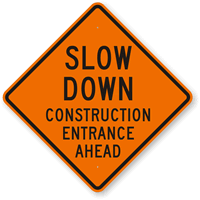Survey finds drivers open to self-driving vehicles
A new poll suggests that drivers are very interested in self-driving vehicles, reports USA Today. More than three of four American licensed drivers questioned are “very likely” to consider or to purchase a driverless car, notes the poll, conducted by Insurance.com, a car insurance website. Of the 2,000 drivers surveyed, 86 percent said that driverless cars would be even more agreeable when presented with the option of lower-priced car insurance.

The public is starting to imagine the benefits of self-driving cars. From Roman Boed.
“People are aware that they already drive cars controlled partly by computers,” Insurance.com managing editor Des Toups noted, in a statement. “Now they see features like collision avoidance on new models and hear about Google cars hitting the roads in a couple of years. An autonomous car is not science fiction anymore.”
The survey, which was conducted in June and polled an equal number of men and women, also found that 24.5 percent of the total drivers polled would not want to own a driverless car. Further, 61 percent said that they didn’t believe such cars could “make the same snap decisions as a human driver,” reports Mashable. And 31.7 percent reported that they would hope to never drive again if driverless cars become widespread. As Toups notes, “Spend time in traffic anywhere and it’s clear many people would rather be doing something else.”
Those polled did have certain objections to driverless car use. For example, 76 percent of those polled said they wouldn’t trust a driverless vehicle to bring their kids to school. And, as the company’s statement notes, there were also concerns about a computer-driven vehicle’s decision-making: “Given a choice between hitting a pedestrian and hitting another vehicle head-on, for example, 79 percent of drivers said they would want their autonomous car programmed to hit the other vehicle.”
“We still don’t know how autonomous cars will communicate, who’ll be liable for failures, or how they’ll mix with old-fashioned cars,” managing editor Toups notes. “But we’re already well down this road.” In fact, 73 percent of those drivers surveyed agreed that cars of the future — model year 2040, in particular — will “operate in ways familiar to the drivers of 2014.”
While interest in self-driving cars seems to be on the rise, separate surveys, however, have discovered different driver reactions. For example, one AutoTrader.com survey from May of this year suggests that a mere 22 percent of 1,500 survey respondents would consider buying a self-driving car, and 43 percent felt that such cars were “a bad idea.”
If surveys are to be believed, American drivers — or, at least those polled — seem to be filled with questions over the idea of autonomous vehicles. (In a separate AutoTrader.com study, 17 percent of survey respondents reported feeling that in-car technology was “extremely important,” and 43 percent reported feeling it was “somewhat important.”) Perhaps a better indicator are automakers’ plans. Google, Nissan, Volvo, Ford and Daimler are further developing this technology, betting on driverly interest in driver-free cars, however difficult that interest may to be to quantify.
Category: Automotive















